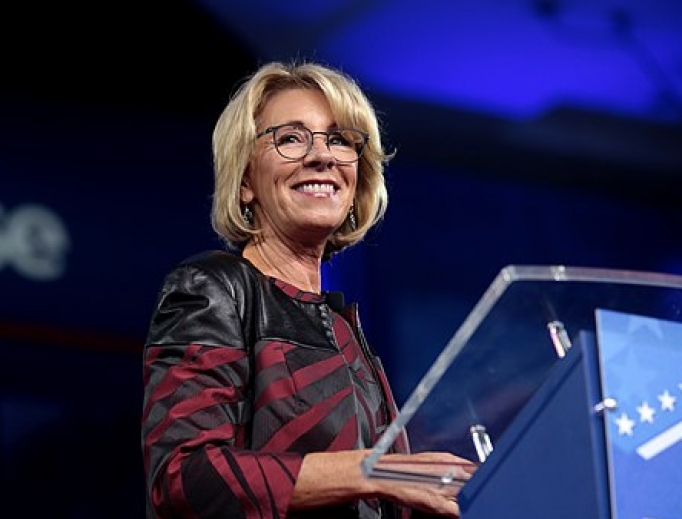US Department of Education May Allow Religious to Receive Federal Student Aid
Education Secretary Betsy DeVos said the proposed rule change protects against religious discrimination in federal higher education aid policy.

WASHINGTON, D.C. — The US Department of Education is proposing to restore eligibility to members of religious orders for certain federal higher education student aid programs.
In a proposed rule announced Dec. 10, the agency said regulatory changes would “restore the ability” of members of religious orders to access certain federal higher education aid programs, “eliminating regulatory provisions that treat members of religious orders as having no financial need in certain circumstances.”
The agency said the rule would ensure that “otherwise eligible students and faith-based entities” wouldn’t be shut out of Title IV, Higher Education Act programs on account of their religious affiliation.
Currently, members of religious orders are considered, under certain subsidized federal student aid programs, to have no “financial need.” They are eligible, however, for certain unsubsidized federal aid programs.
Education Secretary Betsy DeVos said the proposed rule change protects against religious discrimination in federal higher education aid policy.
“Faith-based institutions should not have to worry about losing access to federal programs due to their faith,” DeVos stated Dec. 10.
“These new rules will ensure a level playing field and will guarantee that individuals and institutions can continue to practice their faith and adhere to their values without losing the federal funding opportunities otherwise available to others,” she stated.
The proposed rule would also “eliminate arbitrary limitations” on religious schools’ participation in the federal Gaining Early Awareness and Readiness for Undergraduate Programs, which helps low-income students prepare for college.
Students who borrowed money to pay for college could defer some federal loans if they are volunteering full-time in a tax-exempt organization, and their responsibilities include religious instruction or other religious duties.
The Department of Education said it issued the rule in light of the Supreme Court’s 2017 ruling in Trinity Lutheran Church of Columbia, Inc. v. Comer that a church could not be shut out of a public grant program simply because it was a church.
The case was considered a significant ruling in favor of equal access of houses of worship or religious institutions to public grant programs, and against old state laws barring their eligibility for public grants simply on account of their religious status.
The rule was also based on the administration’s policy of promoting religious freedom, as outlined in President Trump’s May 2017 executive order on religious liberty, as well as October 2017 guidance from the attorney general on federal protections for religious liberty.
- Keywords:
- betsy devos proposes new rule to allow religious
- president trump protects religious freedom
- promoting religious freedom
- religious may receive financial aid












